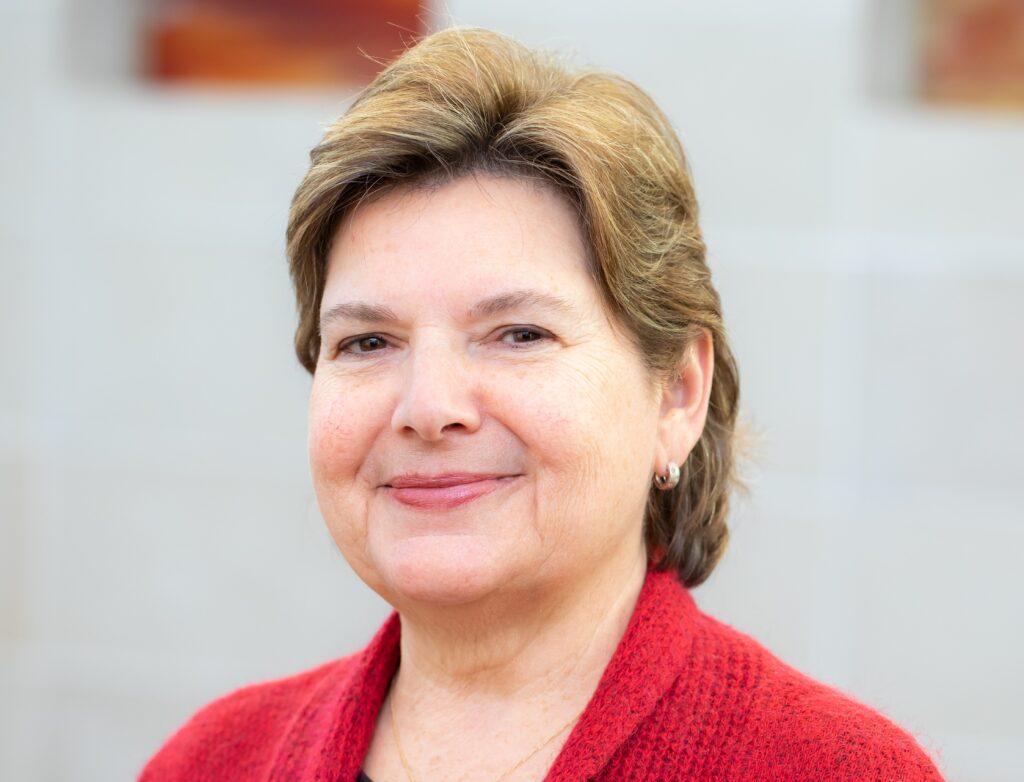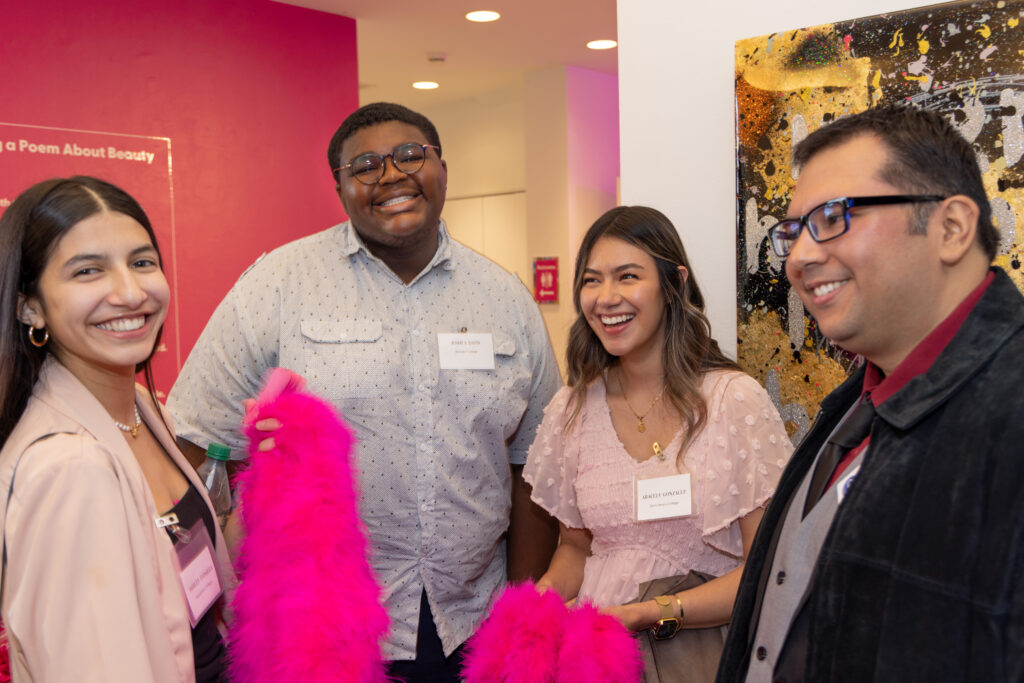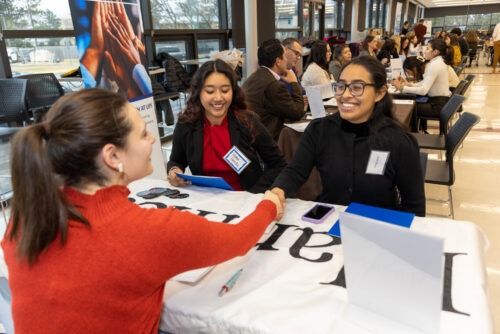
By David A. F. Sweet
Lake Forest High School and Highland Park High School are two of the best-funded public schools on the North Shore. Their zip codes are among the most affluent in the state. Yet there are still hundreds of students at each institution annually who come from low-income families and who are aspiring to be first-generation college students.

Students gather to try to find jobs at the College Bound Opportunities’ Internship Fair.
That’s where College Bound Opportunities (CBO) steps in. Founded in 2006, the non-profit serves six schools – the two mentioned above plus Deerfield High School, Vernon Hills High School, Buffalo Grove High School and Cristo Rey St. Martin College Prep in Waukegan. Sophomores at those schools apply to join CBO – in 2023, 90 applied, and 32 were accepted. Their average family income was around $33,000 – not even enough to pay tuition for one semester at many colleges.
How does CBO help them? The staff assists with college applications, essays, financial aid and scholarship applications, according to its 2022-2023 Gratitude Report. Starting their junior year in high school, students are assigned a mentor – one who is committed to help them dream big in high school and then help them navigate campus life and emotional ups and downs through college graduation six years hence (CBO scholars boast a 98 percent graduation rate). In addition, the CBO College Persistence team connects students with campus resources and checks in weekly to see if they need support of any kind.
CBO also ensures college students enjoy real-world experience. An internship fair each January connects students with companies for paid internships the following summer. Abbvie, Medline, Baxter and other big names have hired CBO scholars.
CBO assists financially with tuition and dorm expenses while giving each incoming freshman a new laptop. The total cost is about $25,000 per student. CBO wants to ensure that its students graduate with as little college debt as possible – in some cases, it is zero.
In exchange, scholars are required to attend a four-year program, and they must live on campus.
“They need to have a sense of belonging,” explained CBO Executive Director Susan Bell about the requirements. “If they live at home, they have distractions and may not graduate in four years.
“Only 62 percent of students who start college graduate. If you don’t graduate and you have debt, how do you pay it off? We do everything we can so they can get that degree.”
Bell has seen CBO grow since she started in a part-time role in 2009. Back then, she was the sole employee; today, she oversees a staff of eight. Donations when she began reached about $500,000 a year; today, they’re closer to $1.2 million. The Schreiber Foundation and The Grainger Foundation are among the biggest donors.
Former CBO Communications Manager Denisse Gaitan is a Highland Park High School graduate and heard about CBO from an alumnus. She was accepted into the program in 2014.

“The biggest challenge is people do not realize the extent of the need in Lake County,” said CBO Executive Director Susan Bell.
“One of the most important things was I developed a lot of close relationships with students going through the college process,” said Gaitan, who graduated from the University of Illinois in 2020. “We were in same shared space. We’d work on applications at the same time. I think just having a support system is important emotionally as you transition to college.”
CBO is even there for its scholars after college.
“We can help them with jobs and graduate school,” Bell said (100 percent of alumni are employed or in grad school). “We help them with career preparation – we do mock interviews, assist them with their LinkedIn profiles, have them attend networking events where they can learn how to talk, hold a drink and network – not something you automatically know what to do.”
Despite CBO’s success in helping hundreds of low-income students over the years, Bell said there are still challenges.
“The biggest challenge is people do not realize the extent of the need in Lake County,” she explained. “The need has nothing to do with your zip code. The checker at Sunset Foods lives in Highland Park and her kids are at the high school.
“We could be at more high schools. There are a lot we could go to, but we need more funding.”
Still, what CBO has accomplished has lifted hundreds of first-generation college students in Lake County to heights their parents could never have expected. And sometimes, more than the monetary help, it’s the emotional support that resonates with the teenagers.
 The Spring Benefit often raises hundreds of thousands of dollars.
The Spring Benefit often raises hundreds of thousands of dollars.
“The hardest adjustment when you’re low-income is: Do you feel you belong at college?” Bell said. “But we tell them all the time that they belong and that they are amazing.”
Unsung Gems Columnist David A. F. Sweet can be reached at dafsweet@aol.com.






